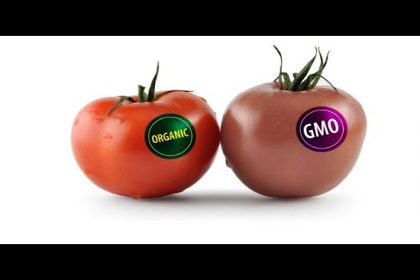
Grassley Says GMO-Labeling Bill Won’t Be Done by July
WASHINGTON — Congressional legislation for labeling food containing genetically modified ingredients won't be finished before Vermont's first-in-the-nation labeling law takes effect this summer, Sen. Chuck Grassley said Monday.
The Senate failed to advance a bill in March that would have banned states from creating their own genetically modified organism-labeling laws in favor of letting food manufacturers do so voluntarily. Grassley said other approaches considered since then haven’t gained traction.
“I don’t know where we go from here,” he said. He told reporters there is “zero” chance Congress will finish work on a bill before July 1, when Vermont becomes the first state to require labeling. Other states are considering their own initiatives.
May 2, 2016 | Source: Des Moines Register | by Christopher Doering
WASHINGTON — Congressional legislation for labeling food containing genetically modified ingredients won’t be finished before Vermont’s first-in-the-nation labeling law takes effect this summer, Sen. Chuck Grassley said Monday.
The Senate failed to advance a bill in March that would have banned states from creating their own genetically modified organism-labeling laws in favor of letting food manufacturers do so voluntarily. Grassley said other approaches considered since then haven’t gained traction.
“I don’t know where we go from here,” he said. He told reporters there is “zero” chance Congress will finish work on a bill before July 1, when Vermont becomes the first state to require labeling. Other states are considering their own initiatives.
The debate has pitted lawmakers such as Grassley against consumer groups that say the public has a right to know what’s in the food they eat. They also say giving food manufacturers the option to label wouldn’t be effective.
The Grocery Manufacturers Association and lawmakers who oppose mandatory labeling say the move could cause consumers to believe GMO products are unsafe. The association, Grassley and others caution that as more states craft their own GMO-labeling laws, food manufacturers will face higher costs and pass them on to consumers.
Vermont’s law will require companies to begin labeling food containing GMOs by July 1, but fines won’t be levied until 2017. Failure to comply with the law would be punishable by a $1,000 fine for each day a product isn’t properly labeled.
“There is still time for Congress to craft a national mandatory GMO solution, but only if enough Republicans are willing to support (it),” said Scott Faber, vice president for government affairs for consumer advocacy firm Environmental Working Group. “There clearly are not (the) votes for a voluntary solution.”
Even if Congress fails to act before July, he said, that “will not end that sort of congressional interest in crafting a national solution.”
Senate Majority Leader Mitch McConnell, R-Ky., told trade publication Agri-Pulse recently that he’s confident Congress can still find a solution.
“I’d love to be able to tell you we got it fixed … but we haven’t given up,” he said. “We’re hoping to get a solution.”
The House passed its version of the legislation last summer.
